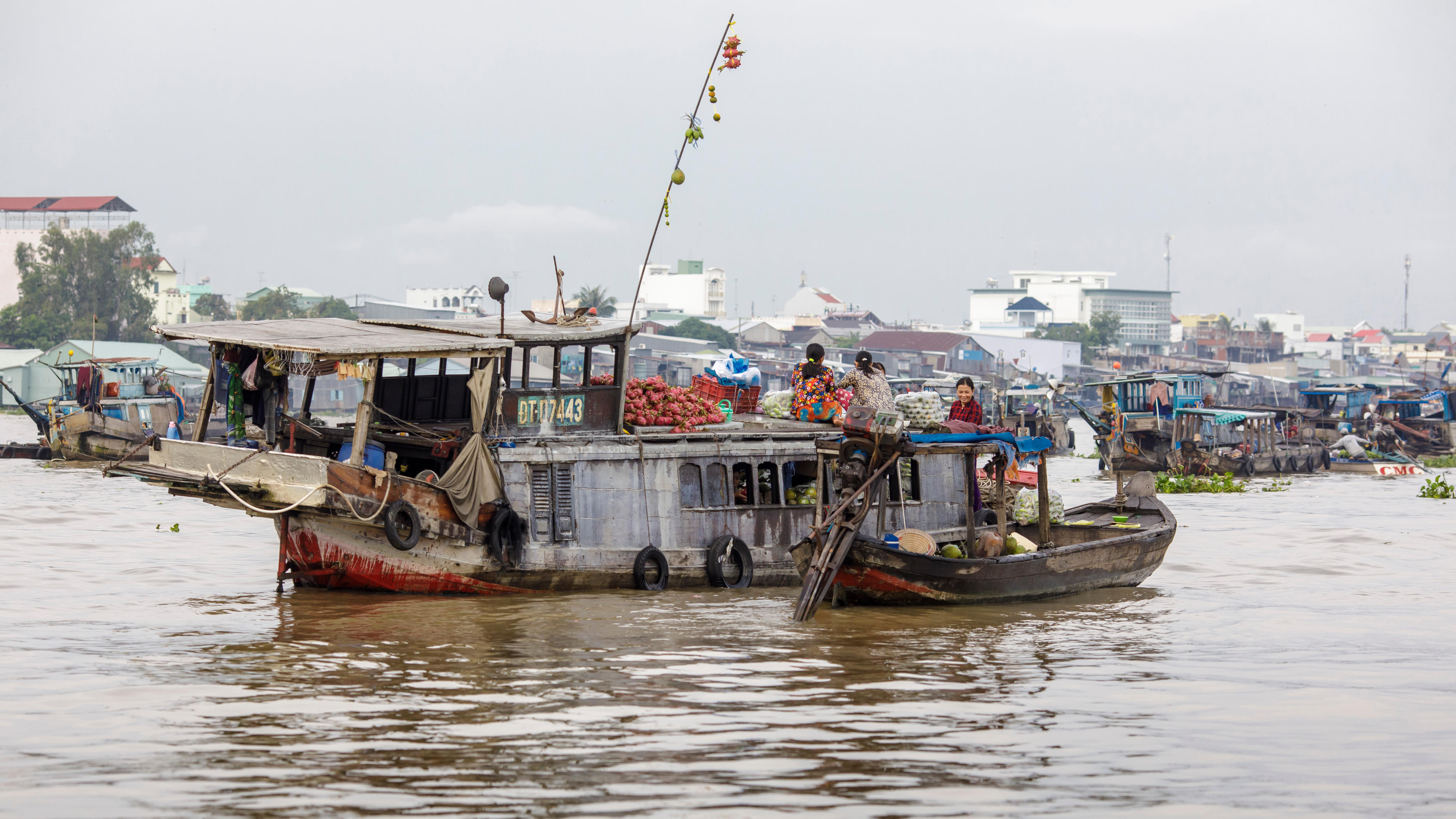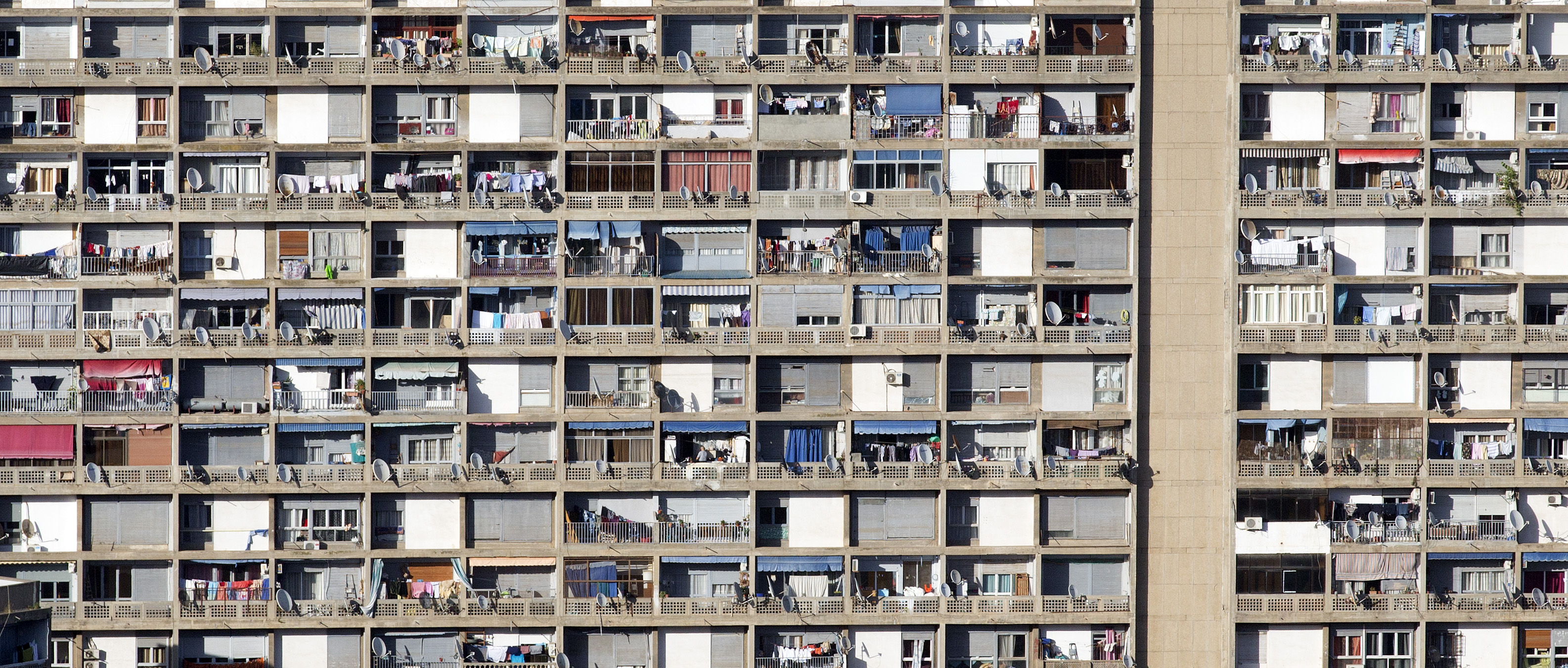Floating market on the Mekong in Vietnam
Copyright© Thomas Imo/photothek.net
Water and cities
In rapidly growing cities, the expansion of public services typically fails to keep pace with the growth of unplanned informal settlements, resulting in growing numbers of unserved people and increasing environmental and water pollution in and around cities. This means that urban water and wastewater management is faced with the complex challenge of ensuring universal coverage, balancing different interests and simultaneously protecting natural resources.
Relevant tasks include:
- Increasing water security for drinking water supply, hygiene, industrial use and urban agriculture; and limiting the risk of drought, for instance through groundwater and rainwater management, development of circular systems, water loss reduction, expansion of water storage, and desalination
- Developing climate-resilient solutions for water and sanitation, especially with a view to closing service gaps in rapidly growing peri-urban neighbourhoods
- Protecting water quality and biodiversity through wastewater management and by enhancing the quality of shore and bank areas and wetlands as part of the urban landscape
- Limiting flood risks through urban greening and the creation of floodplains and infiltration areas
- Carrying out urban development measures such as creating bodies of water and green areas for recreation purposes and for the prevention of heat islands
- Reducing greenhouse gas emissions, for instance by increasing energy efficiency, using renewable energy and producing biogas from wastewater and faecal sludge
German activities
Through its development cooperation, Germany assists its partners in improving urban water security. Support is being provided, in particular, for
- the development of robust, universally accessible supply systems,
- participatory urban and infrastructure planning that systematically takes account of water security and of water-related risks, and
- efforts to reduce urban water consumption.
There is a special focus on nature-based solutions, water and wastewater management based on a circular approach, and more efficient use of water.
The German Development Ministry (BMZ) considers partnerships between water utilities as an important tool for the exchange of technical and business skills and knowledge. The United Nations Human Settlements Programme (UN-Habitat) and the Global Water Operators' Partnership Alliance (GWOPA (External link)) under its umbrella are thus important strategic partners for Germany's development cooperation. The BMZ supported the GWOPA Secretariat's establishment in Bonn and is going to provide continued financial support to the Secretariat at least until 2026.
As at: 13/06/2024


